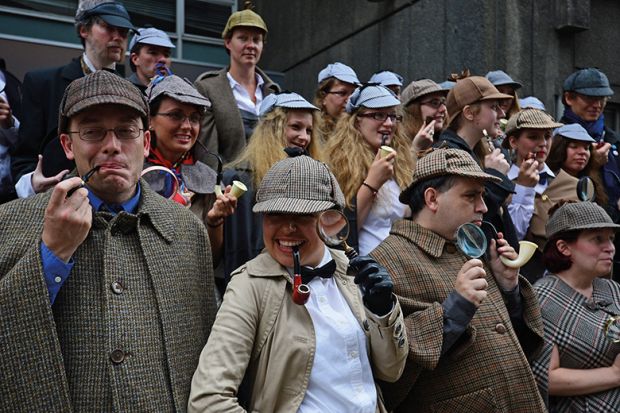Turnitin’s proposal to buy out its last major competitor would give it a near monopoly in global academic integrity services, with insiders warning that the deal could reduce product diversity while handing the company a treasure trove of data.
Turnitin’s latest planned acquisition is Ouriginal, a Stockholm-based company formed just last September from the union of European text-matching services Urkund and PlagScan. Turnitin said the deal was “subject to regulatory approvals”.
If approved, the acquisition would be the latest in a long line for the California-based company, which bought the Ukrainian plagiarism detection company Unicheck last June and absorbed Indianapolis-based competitor VeriCite in early 2018. Turnitin also snapped up online proctoring platform ProctorExam in February, assessment platforms Gradescope and ExamSoft in 2018 and 2020, and automated tutoring support company LightSide Labs in 2014.
Canadian business analyst Justin Menard estimated that the purchase of Ouriginal would hand Turnitin some 97 per cent of the plagiarism detection platforms market in Asia, 96 per cent in Africa, 88 per cent in Europe, 86 per cent in Oceania, 83 per cent in the Middle East, 77 per cent in Latin America and 67 per cent in North America.
Tomáš Foltýnek, a semantic analysis expert at Mendel University in the Czech Republic, said the combination of the two services’ databases would improve the coverage of their text-matching capabilities. He said their “usability” would not be diminished as long as the owner did not combine the two tools and discard some of their features.
But, he continued, the proposal would create a monopoly, which was “never good” for users. “If you don’t have competition, you are not motivated to improve services.”
Dr Foltýnek headed a team that tested 15 web-based text-matching systems in 2018 and 2019, in the biggest study of its kind. Turnitin, Unicheck and Ouriginal’s predecessors were the top-rated systems for coverage and among the top for usability. “Since we published our paper, Turnitin acquired UniCheck, and PlagScan and Urkund merged into one system,” he said.
“So out of the four systems that scored among the best in our study, now we have only two. If they decide to merge, they lose their incentive to improve features like translation plagiarism detection or authorship identification to help detect contract cheating.”
A Turnitin spokeswoman said the products involved in the latest deal would continue to operate independently “until the transaction closes”, but no decisions had been made regarding the “post-closing product road map”. The company was committed to “continually improving our product portfolio”, she added.
Kerr Gardiner, a former head of learning technology at the University of Glasgow who has since worked for Turnitin as an independent consultant, said he had no “particular qualms” about a merger. The Covid pandemic’s impact on university workloads had fuelled sector-wide demand for “integrated assessment systems” that aligned with learning platforms, he said.
“Core university systems such as assessment tools require suppliers to have substantial infrastructure and technical support, and this generally requires a certain size of company,” he said.
Turnitin’s growth has fuelled concerns about the amount of intellectual property it has accumulated in the essays that its software collects and checks, particularly after US media giant Advance Publications bought it for more than $1.7 billion (£1.2 billion) in 2019.
Turnitin’s spokeswoman said the company observed intellectual property standards and processes, and that universities and academics were free to choose whether submitted work was “indexed in our database”.
In 2008, Turnitin’s then parent company won a copyright infringement lawsuit filed by four students. But Turnitin critic Jesse Stommel, a digital studies expert at the University of Mary Washington in Virginia, drew a distinction between copyright and use rights.
“Ownership is only one part of the conversation – it’s what you can do with the data,” Dr Stommel said. “We don’t know exactly what they’ll do with it, but we can look at the example of other edtech companies who have collected massive amounts of data.”
He cited 2019 remarks by Dan Goldsmith, then chief executive of the company that developed the Canvas learning management system, who reportedly claimed to have “the most comprehensive database on the educational experience in the globe. No one else has those data assets at their fingertips to be able to develop…algorithms and predictive models.”
Dr Stommel suggested that Turnitin was not pursuing a monopoly to raise its prices. “I think they want a monopoly because they want to normalise the function of the work that they do. When you have a bunch of different competitors, they ask hard questions of one another. When you don’t, it becomes just the norm.”
POSTSCRIPT:
Print headline: Anxiety as Turnitin nears monopoly hold with bid
Register to continue
Why register?
- Registration is free and only takes a moment
- Once registered, you can read 3 articles a month
- Sign up for our newsletter
Subscribe
Or subscribe for unlimited access to:
- Unlimited access to news, views, insights & reviews
- Digital editions
- Digital access to THE’s university and college rankings analysis
Already registered or a current subscriber?










